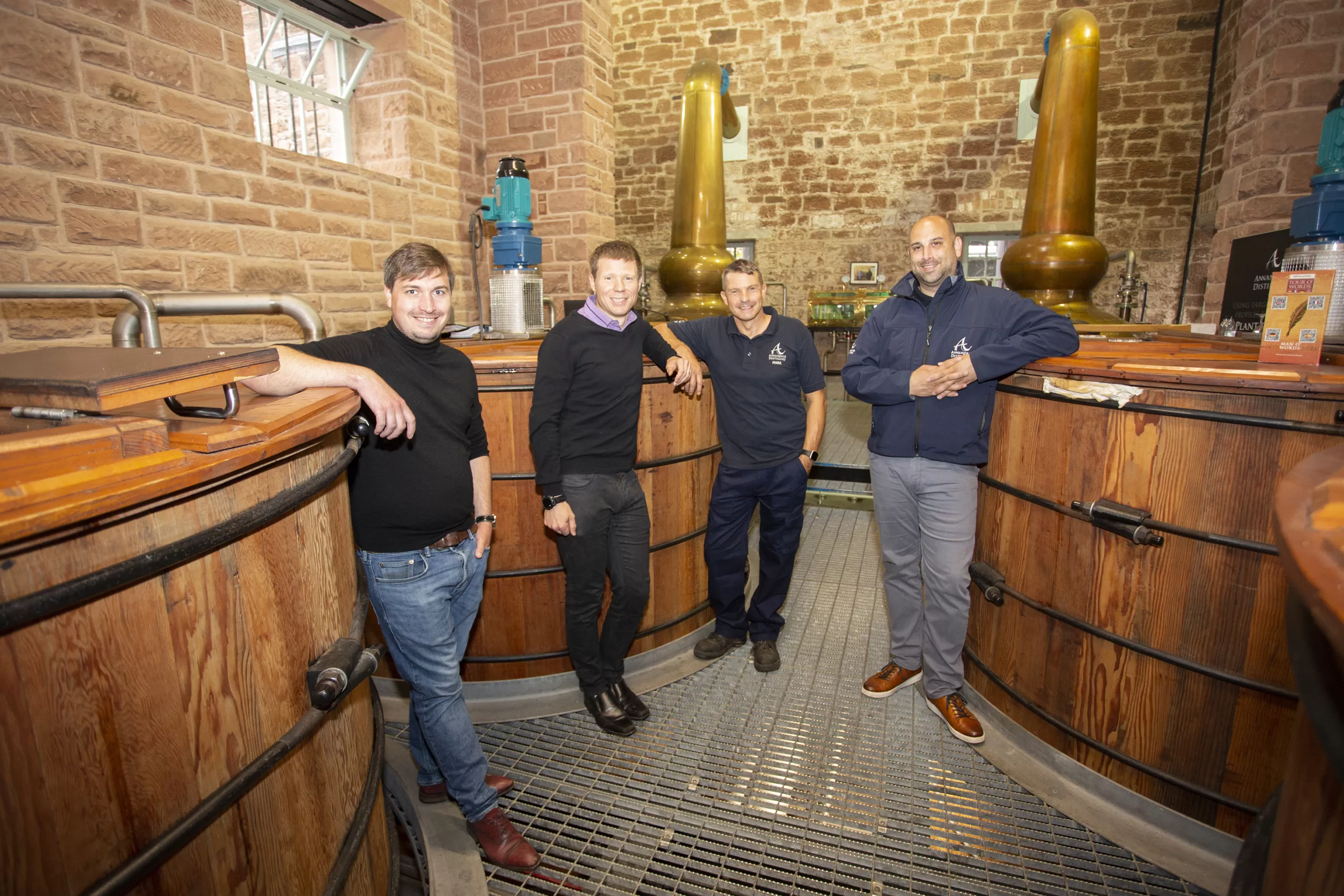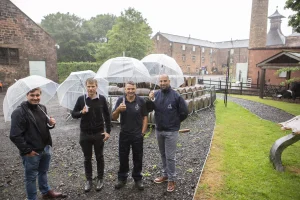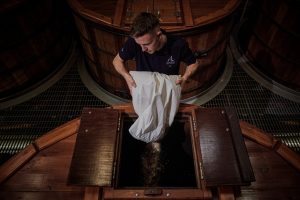Spirit of innovation – £3.6m world-first energy ‘game changer’ for Annandale Distillery
Annandale Distillery will be the first in the world to use new thermal energy storage technology – described as “a game changer in the race to net zero” – as part of a £3.6 million trial funded by the Department for Energy Security & Net Zero.
A new ‘decarbonisation machine’ which can replace up to 100 per cent of the fossil fuels currently used in high temperature industrial processes will be installed at the award-winning distillery in Annan, and used to produce a carbon-neutral whisky.
The groundbreaking new technology has been developed by new University of Edinburgh spinout, Exergy3. It was awarded funding from the UK Government’s £55m Industrial Fuel Switching Competition, as part of the £1bn Net Zero Innovation Portfolio (NZIP), for the distillery trial.
Professor David Thomson, co-owner of Annandale Distillery says: “Our distillery is on a journey towards net zero. Being able to raise all of the steam we need via green electricity would be a massive step forward for us, and for the Scotch whisky industry as a whole. We look forward to partnering with Exergy3 on delivering this really important project.”
Currently, around half of greenhouse gas emissions worldwide come from high temperature processes used in industries from food and drink to district heating networks and combined heat and power plants.
Exergy3’s modular energy storage system takes excess renewable energy from the National Grid and stores it at temperatures of up to 1,200C with minimal energy losses.
The team says their technology can store up to 36 MWh of thermal energy on the relatively small footprint of a 40-foot shipping container, and can also be easily transported and installed on site.
The technology was invented by Dr Adam Robinson of the University’s School of Engineering, now chief technology officer at Exergy3. Its Chief Executive Officer, Dr Markus Rondé, says: “We are very excited about the potential applications of this technology, from process heat provision for large-scale industry, to decarbonising buildings through residential heating networks.
“Our system charges quickly, can store more energy at higher temperatures than other systems, with less thermal energy loss, and is easily transported and installed with minor disruption of the user’s site.
“In my view, this technology is a game changer in the race to net zero, as we believe that we will be able to offer a commercially viable pathway to decarbonisation to industrial energy users within the next few years.”










